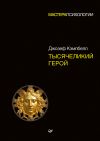Текст книги "Внешнеторговый международный контракт: типовой образец, пример контракта, экономические и юридические аспекты"

Автор книги: Денис Шевчук
Жанр: О бизнесе популярно, Бизнес-Книги
сообщить о неприемлемом содержимом
Текущая страница: 4 (всего у книги 7 страниц) [доступный отрывок для чтения: 2 страниц]
Check Questions
What are Incoterms?
Who compiled Incoterms and when?
Why are the ICC Incoterms regularly updated?
What is the scope of Incoterms?
What are the two most common misconceptions about Incoterms?
What is the purpose of Incoterms?
What happens if the parties use the wrong Incoterms?
What are the specifics of Incoterms 2000?
How many definitions do Incoterms 2000 offer?
What are the basic delivery terms?
What are the main obligations of the buyer under
– EXW
– DDP
– FOB
– CIF?
What are the main obligations of the seller under
– CIF
– CIP
– DDP?
What is the reputation of Incoterms?
Why do Incoterms now enjoy world-wide recognition?
THE UNIDROIT PRINCIPLES OF INTERNATIONAL COMMERCIAL CONTRACTS
It would be no exaggeration to say that the drawing up of the UNIDROIT Principles of International Commercial Contracts constitutes an important contribution to the process of international unification of law.
Purpose of the UNIDROIT Principles
Below please find the purpose of the UNIDROIT Principles as stated in the Preamble and the Russian translation [Принципы международных коммерческих договоров/ Перевод с англ. А. С. Комарова – М.: Международный центр финансово-экономического развития, 1996.].
Preamble (Purpose of the Principles)
Преамбула (Цели Принципов)
"These Principles set forth general rules for international commercial contracts.
"Настоящие Принципы устанавливают общие нормы для международных коммерческих договоров.
They shall be applied when the parties have agreed that their contract be governed by them.
Они подлежат применению в случае, если стороны согласились, что их договор будет регулироваться этими принципами.
They may be applied when the parties have agreed that their contract be governed by "general principles of law", the "lex mercatoria" or the like.
Они могут применяться, когда стороны согласились, что их договор будет регулироваться "общими принципами права","lex mercatoria" или аналогичными положениями.
They may provide a solution to an issue raised when it proves impossible to establish the relevant rule of the applicable law.
Они могут использоваться для решения вопроса, возникающего в случае, когда оказывается невозможным установить соответствующую норму применимого права.
They may be used to interpret or supplement international uniform law instruments.
Они могут использоваться для толкования и восполнения международных унифицированных правовых документов.
They may serve as a model for national and international legislators".
Они могут служить моделью для национального и международного законодательства".
Non-legislative means of unifying law
Special emphasis should be laid on the fact that the UNIDROIT Principles are non-legislative means of unification of law. They do not involve the endorsement of Governments, hence they are not a binding instrument and their acceptance depends on their persuasive authority.
There are a number of significant ways in which the UNIDROIT Principles may be applied. The most important are explained in the Preamble. An excerpt follows.
UNIDROIT Principles as rules of law governing contracts
"As the Principles represent a system of rules of contract law which are common to existing national legal systems or best adapted to the special requirements of international commercial transactions, there might be good reasons for the parties to choose them expressly as the rules applicable to their contract, in place of one or another particular domestic law.
"Поскольку Принципы представляют собой систему норм договорного права, являющихся общими для существующих национальных правовых систем или в наибольшей степени приспособленных к особым требованиям международных коммерческих сделок, вполне разумным для сторон мог бы быть прямой выбор Принципов в качестве норм, применимых к их договору вместо той или иной конкретной правовой системы.
Parties who wish to adopt the Principles as the rules applicable to their contract would however be well advised to combine the reference to the Principles with an arbitration agreement.
Можно было бы посоветовать сторонам, желающим принять Принципы в качестве норм, применимых к их договору, объединить ссылку на Принципы с арбитражным соглашением.
The reason for this is that the freedom of choice of the parties in designing the law governing their contract is traditionally limited to national laws. Therefore, a reference by the parties to the Principles will normally be considered to be a mere agreement to incorporate them in the contract, while the law governing the contract will still have to be determined on the basis of the private international law rules of the forum. As a result, the Principles will find the parties only to the extent that they do not affect the rules of the applicable law from which the parties may not derogate".
Причина этого заключается в том, что свобода сторон выбирать право, регулирующее их договор, традиционно ограничивается ссылкой на национальное право. Поэтому ссылка сторон на Принципы обычно будет рассматриваться как простое соглашение об их инкорпорировании в договор, в то время как право, регулирующее договор, должно тем не менее быть установлено на основе норм международного частного права места рассмотрения спора. В результате Принципы будут связывать стороны только в той мере, в какой они не будут затрагивать императивные нормы применимого права, от которых стороны не вправе отступать".
The main points covered by the UNIDROIT Principles are:
1. General Provisions
Общие положения
2. Formation
Заключение договора
3. Validity
Действительность
4. Interpretation
Толкование
5. Content
Содержание
6. Performance
Исполнение
7. Non-performance
Неисполнение
The UNIDROIT Principles have been offered to the international legal and business communities. They may be of even greater importance to the relevant communities of Russia, the country now making its way to a market economy and in a period of transition to new legislative principles and norms.
Check Questions
What is the purpose of the UNIDROIT Principles?
Are the UNIDROIT Principles legislative means of unification of law?
THE ICC MODEL INTERNATIONAL SALE CONTRACT (MANUFACTURED GOODS INTENDED FOR RESALE)
Type of contract envisaged by the ICC model contract
The ICC model contract is primarily designed for contacts governing the sale of manufactured goods to be re-sold, the sort of contract under which the buyer is not a consumer and the contract itself is a separate transaction rather than part of a long-term supply agreement.
Structure of the ICC model contract
It is common knowledge that contracts for the international sale of goods can be drawn either in the form of a single document embracing all the terms and conditions for the sale of goods or in the form of two documents, with one supplementing the other: special conditions and general conditions. As for the ICC Model International Sale Contract, it consists of two parts: Specific Conditions (Part A) and General Conditions (Part B). Part A presents principal conditions, Part B renders them concrete.
In Part A one can find sixteen points by which the parties may agree the particular terms of their contract by filling in the gaps. These points are listed below, the corresponding clause number of the General Conditions is indicated in brackets:
Goods to be sold
Contract price (art. 4)
Delivery terms
Time of deliveryInspection of goods by buyer (art. 3)
Retention of title (art. 7)
Payment conditions (art. 5)
Documents
Cancellation date
Liability for delay (art. 10.1, 10.4 and 11.3)
Limitation of liability for lack of conformity (art. 11.5)
Limitation of liability where non-conforming goods are retained by the buyer (art. 11.6)
Time-bar (art. 11.8)
Applicable law (art. 1.2)
Resolution of disputes (art. 14)
Other
The ICC General Conditions have been prepared for use together with the Specific Conditions (Part A) of the International Sale Contract (Manufactured Goods intended for resale), but they may also be used for any other sale contract. One should also remember that in case of a conflict between these General Conditions and any special conditions agreed upon between the parties, the special conditions shall prevail.
The following table of clauses provides the fourteen articles which constitute Part B of the ICC Model International Sale Contract.

We would like to draw your attention to the fact that the ICC model contract incorporates the 1980 Vienna Convention in article 1.2(A) of Part B, which means that the 1980 Vienna Convention will apply whether or not the countries of the seller and buyer have ratified this Convention.
Below are some comments on what should normally be included in a sale contract and how.
Standard content of a sale contract
General
A sale contract (like any other contract) starts with a statement of the parties to the contract, i. e. information regarding seller and buyer (names and complete legal addresses, including telephone/fax numbers and e-mail). This statement may also give information on contact persons from both sides.
Particulars of how certain terms should be interpreted under a specific contract are also given at the beginning.
Characteristics of the goods
Next comes the subject of the contract, i.e. description of goods for sale. Information on the goods to be bought or sold must be complete and include: type of goods, their quality, quantity, origin, colour, weight, technical characteristics, trade mark if applicable, packing.
Contract price
The ICC model contract finds it appropriate for the contract price clause A-2 of Part A to specify the currency (or currencies) in which payment is to be made and the amount payable to the Seller (both in numbers and letters).
Attention should be drawn to the fact that the price does not include VAT, and is not subject to any price adjustments (art. 4.2 of Part B), with the exception of any alterations authorized by the special conditions of the contract. The model contract does not contain price adjustment clauses because it is primarily intended for one-off transactions rather than long-term supply arrangements.
Delivery terms
As to delivery terms, it is recommended that the parties incorporate into their contract one of the Incoterms (the current or an earlier version). If they fail to do so, delivery shall be EXW (General Conditions, art.8).
It should be noted that the Working Party responsible for drafting the model contract recommends that the Incoterms most appropriate for use with this model contract would be EXW, FCA, CPT, CIP, DAF, DDU or DDP.
Time of delivery
The parties are also advised to indicate a time of delivery by agreeing either a precise date on which or a period within which the seller undertakes to fulfil his delivery obligations under the relevant Incoterm chosen by the parties.
Inspection and tests
If the parties agree that the buyer has the right to inspect the goods to make certain that they conform to the contract, the relevant clause in the special conditions specifies what inspections the buyer may require and where. In the model contract "before shipment" inspection is recommended (A-5 of Part A).
Article 3 of Part B says that the seller is required to notify the buyer in good time before shipment of the readiness of goods for inspection on the agreed premises.
Retention of title
As indicated in article 7 of Part B, the parties may agree that the goods will remain the property of the seller until payment is received in full.
Payment conditions
It is important to define the method and time of payment. In A-7 of Part A it is recommended that the parties agree one of the following modes of payment: payment on open account, payment in advance, documentary collection, irrevocable documentary credit, other (e.g. cheque, bank draft, electronic funds transfer to the designated bank account of the seller).
Attention should be drawn to the fact that when payment is to be made by transfer to the seller’s bank, not only the name and address of the bank, but all the payment details should be enumerated.
Payment on open account
Time of payment on open account as stipulated in article 5.1 of Part B "shall be 30 days from the date of invoice".
If the parties agree that payment is to be backed by a bank guarantee, the buyer must provide at least 30 days before the agreed date of delivery a first demand bank guarantee or a standby letter of credit subject to the relevant rules published by the ICC (art. 5.5 of Part B).
Payment in advance
It should be noted that unless otherwise agreed, payment in advance is understood to refer to the full price. Article 5.2 of Part B provides that advance payment must be received by the seller’s bank at least 30 days before the date of delivery.
Documentary collection
The parties can agree on payment by documentary collection, then documents are to be presented against payment (D/P) or against acceptance (D/A). It should not be overlooked that the tender will in any case be subject to the ICC Uniform Rules for Collection (art. 5.4 of Part B).
Irrevocable documentary credit
If the parties agree on payment by documentary credit, then the buyer should arrange for a documentary credit (confirmed or unconfirmed) in favour of the seller. Place of issue (if applicable) and place of confirmation (if applicable) should not be overlooked in the special conditions.
The model contract (art. 5.3 of Part B) requires that the documentary credit be paid at sight and allows partial shipments and transhipments.
Documents
It is important to indicate documents (if any) to be provided by the seller in accordance with the applicable Incoterm. In the model contract the parties are advised to choose from the following list:
Transport documents in common use, with an indication of the type of transport for which they are appropriate
Commercial Invoice
Packing list
Insurance document
Certificate of origin
Certificate of inspection
Liability for delay
In accordance with international commercial practice the ICC model contract provides for limitation of the amount of damages that may be claimed for delay in delivery, non-delivery and non-conformity of goods by stating basic formulae in Part B.
Article 10.1 of Part B says that in case of delay in delivery of any goods, the buyer may claim liquidated damages of 0,5 per cent per week with a maximum amount of 5 per cent of the price of the delayed goods.
In case of termination of the contract, in addition to any amount paid or payable under article 10.1 of Part B, the buyer may claim an amount for proven loss not exceeding 10 per cent of the price of the non-delivered goods (article 10.4 of Part B).
It should be emphasized that although these formulae are recommended, the parties are given an opportunity to modify them by completing clause A-10 of Part A, i.e. by specifying
• the sum (as a percentage of the price of delayed goods) to be deducted weekly as liquidated damages as well as the maximum not to be exceeded or
• the amount
Time-bar
The ICC model contract considers questions connected with time-bar in clause A-13 of Part A and in article 11.8 of Part B. It is important to bear in mind that Russian firms never include these matters in their contracts because they regard them as subject to applicable law.
Force-majeure
The ICC model contract (art. 13.1 of Part B) recommends the following wording for force majeure:
"A party is not liable for a failure to perform any of his obligations in so far as he proves:
that the failure was due to an impediment beyond his control, and
that he could not reasonably be expected to have taken into account the impediment and its effects upon his ability to perform at the time of the conclusion of the Contract, and
that he could not reasonably have avoided or overcome it or its effects".
Further stipulations in this article are intended to allocate losses in the case of commonly recognized instances of force majeure.
Article 13(2) says that if a force majeure situation arises, a party seeking relief must promptly notify the other party of such impediment and its effects on his ability to perform. Notice must also be given when the ground of relief ceases. The party failing to give either notice is held liable for damages for loss which otherwise could have been avoided.
It should be noted that a ground of relief under Article 13 of the model contract, without prejudice to its other remedies, releases the party failing to perform from liability for damages, penalties and other contractual sanctions, "except from the duty to pay interest on money owing as long as and to the extent that the ground subsists" (art. 13.3 of Part B).
Attention should also be drawn to the fact that if the grounds of relief subsist for more than six months, either party has the right to terminate the contract with notice (art. 13.4 of Part B).
Applicable law
As already mentioned above, the ICC model contract subjects transactions to the 1980 Vienna Convention (CISG). The model contract is drafted on the assumption that the parties’ rights must be governed by the 1980 Vienna Convention and, as to questions not covered by the Convention, by the law of the country where the seller has his place of business (art. 1.2 (a, b) of Part B).
Although the 1980 Vienna Convention does not cover all aspects of sale contracts, it is a law made especially for international transactions, hence a law promoting uniformity and consistency. That is why parties are not recommended to choose a domestic law to govern their contract instead of the Convention. If, however, parties wish to submit their contract to a national law in place of the 1980 Vienna Convention, or, if they wish to choose a law other than that of the seller to govern questions not covered by the Convention, the following wordings are recommended:
"This sales contract is governed by the domestic law of _____ (country)" (A-14(a)).
"Any questions not covered by CISG will be governed by the law of _____ (country) (A-14(b)).
Resolution of disputes
The dispute resolution mechanism is specified in A-15 of Part A and in art. 14 of Part B. Parties may choose between arbitration and litigation for the resolution of disputes arising under the contracts. In either case the parties are advised to specify the venue of arbitration/litigation.
If the parties fail to choose between the alternatives, the ICC Arbitration will apply. The more usual way is resolution of a dispute by International Commercial Arbitration under the arbitration clause of a contract.
One should remember that the ICC Model International Sale Contract is, in fact, a model drawn to illustrate provisions that seller and buyer should specifically draft into their contracts.
Check Questions
What type of contract does the ICC model contract envisage?
Which part of the ICC model contract sets out standard terms common to all contracts?
Which part of the ICC model contract sets out terms special to a particular contract of sale?
What should normally be included in a contract for the international sale of goods?
What are the principal methods of payment?
Which documents are required under the ICC model contract?
What is a force-majeure clause and why is it important?
How are disputes resolved under a contract for the international sale of goods?
II. THE CIVIL CODE OF THE RUSSIAN FEDERATION AND CONTRACTS FOR THE INTERNATIONAL SALE OF GOODS
Attention should be drawn to some of the most frequently used provisions of the Civil Code of the Russian Federation if Russian legislation is the governing law. Such provisions illustrate admirably the relations between parties and how such relations are regulated when Russian law applies.
FORM OF TRANSACTIONS
The form of a foreign economic transaction, if even one of its signatories is a Russian legal person or a Russian citizen, must be subject to Russian law, regardless of where the transaction is concluded.
This precept is established by article 1203(2) of the Civil Code of the Russian Federation:
"The form of a foreign economic transaction, if even one of the parties to which is a Russian legal person or a Russian citizen, shall be subject, regardless of the place of conclusion of the transaction, to Russian law".
The Civil Code of the Russian Federation Division VI article 1209(2).
"Форма внешнеэкономической сделки, хотя бы одной из сторон которой является российское юридическое лицо или российский гражданин, подчиняется, независимо от места совершения этой сделки, российскому праву".
ГК РФ статья 1209(2).
NO PAROLE CONTRACTS
A Russian firm cannot conclude a parole contract (i.e. an oral contract) with a foreign company, it may participate only in written contracts duly signed.
"Nonobservance of the simple written form of a foreign commercial transaction shall entail the invalidity of the transaction".
The CC RF Art. 162(3)
"Несоблюдение простой письменной формы внешнеэкономической сделки влечет недействительность сделки".
ГК РФ ст.162(3)
MIXED CONTRACTS
Article 421(3) of the Civil Code of the Russian Federation stipulates that
"The parties may conclude a contract that contains elements of various contracts provided for by a statute or other legal acts (a mixed contract)".
The CC RF Art. 421(3)
"Стороны могут заключить договор, в котором содержатся элементы различных договоров, предусмотренных законом или иными правовыми актами (смешанный договор)".
ГК РФ ст.421(3)
Regarding mixed contracts (providing not only for the sale of goods but also for services), article 3(2) of the 1980 Vienna Convention stipulates that the Convention does not apply to contracts in which the greater part of the obligations of the party who furnishes the goods consists in the supply of labour or other services.
In this regard, the Civil Code of the Russian Federation (article 421(3)) sets out that the rules on contracts whose elements are contained in the mixed contract apply to the appropriate arrangement between the parties under the mixed contract, unless something otherwise follows from the parties’ agreement or from the substance of the mixed contract.
"The rules on contracts whose elements are contained in the mixed contract shall be applied to the relations of parties under the mixed contract unless otherwise follows from an agreement of the parties or the nature of the mixed contract".
CC RF art. 421(3)
"К отношениям сторон по смешанному договору применяются в соответствующих частях правила о договорах, элементы которых содержатся в смешанном договоре, если иное не вытекает из соглашения сторон или существа смешенного договора".
ГК РФ ст.421(3)
APPLICABLE LAW
Article 1211 of the section on "Private International Law" in Part 3 of the Civil Code of the Russian Federation directly points to the law of the country with which the contract is most closely connected as the law which must govern the contract in the absence of an agreement of the parties on the applicable law.
The law of the country with which the contract is most closely connected is the law of the country where the party whose performance is decisive for the content of the contract has its place of residence or basic place of activity, if the parties have not agreed otherwise. In a contract of purchase and sale the seller must be regarded as such a party.
Check Questions
What does the Russian legislation say about the form of transactions?
Can a Russian firm conclude a parole contract with a foreign company?
Правообладателям!
Данное произведение размещено по согласованию с ООО "ЛитРес" (20% исходного текста). Если размещение книги нарушает чьи-либо права, то сообщите об этом.Читателям!
Оплатили, но не знаете что делать дальше?








































